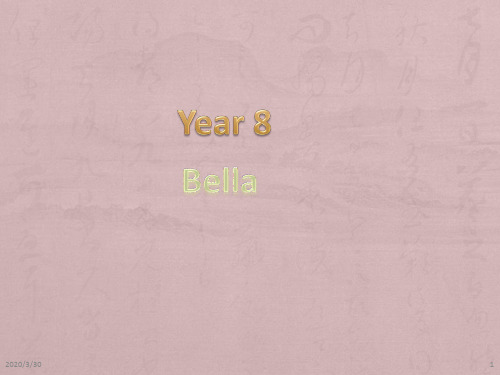中考英语复习:新目标八年级上重点知识归纳课件
新目标英语八年级上册复习课件(一)Units 1—3[八年级上册](共39张PPT)
](https://img.taocdn.com/s3/m/eccca72edd36a32d73758187.png)
由“My mother prefers to take a bus to her 解析 office”可知后半句译为“虽然她自己有一辆小汽车”,故 选C。
自学反馈
重点突破
第6课时┃ Units 1—3 [八年级上册]
巧 辨 异 同 ●1 hardly/hard 词条 hardly 词性 副词 副词 意义 几乎不;几乎没有 辛苦地;努力地;猛烈地
自学反馈 重点突破
第6课时┃ Units 1—3 [八年级上册] 类别 课标考点要求
quietly noisy 8. quiet→(副词) ________→( 反义词) ________ 9.compete→(名词)竞赛,比赛___________→( competition 名 competitor 词)竞争者,参赛者___________ carefully 10.care→(形容词) ________→( 副词) ________ careful →(形容词的反义词) ________ careless 词汇 拓展 11. little→(比较级) ________→( 比较级的反义词) less ________→( 最高级) ________→( 最高级的反义 more least 词) ________ most 12.say→(名词) ________→( 过去式) ________→ saying said says (第三人称单数) ________
hard
形容词 困难的(相当于difficult); 硬的;勤奋的;苛刻的
He always works hard, but he can hardly make money. 他总 是努力工作,但他几乎赚不到钱。
自学反馈 重点突破
第6课时┃ Units 1—3 [八年级上册]
人教版新目标英语中考复习 八年级上册Unit9-Unit10课件

Can you come to my dinner party on Friday?
Answer questions according to the picutre A: S1: A: S2:
Can you come to my birthday party? Sure, I’d love to.
2b
1. 她爸爸说他自己有时候也会犯粗心的错误。 Her dad said he sometimes make ____ careless ______ mistake ____ himself. 2. 我们应该总是尽力去解决它们。 try to ________ solve them. We should always _____ 3.学生们经常忘记了他们的父母经验比他们多,并总是 帮助他们。 have more Students often forget that their parents ____ experience than them,and are _______there always __________ to ______ help them. 4. 在英语中,我们说分享问题就如同把问题切成两半。 cutting In English,we say that sharing ______ a problem is like ______ it _____half. in
Try to say important phrases
look forward to 去看病 have the flu 其他时间 hang out go to the doctor 收到某人的信 闲逛 turn down another time 期待盼望 得了流感 prepare for an exam 拒绝 hear from 准备考试
人教版英语新目标八年级上册复习ppt课件

• 3)这些不定代词做主语时,谓语动词用第三人 称单数。如:
• Is everybody here? 大家都到齐了吗?
• something,somebody,someone, somewhere用于肯定句及表示请求或建议的疑问 句中,而anything,anybody,anyone, anywhere用于否定句及疑问句中。如:
Unit 1 ┃ 易错点针对训练
┃易错点针对训练┃
( A )1. There are ________ people on the bus.
C.too much
D.much too
( C )2. —Who cleaned the room yesterday? —Tom ________.
A. are
B. is C. 精选ppt be
D. wer9e
11.And because of the bad weather, we couldn’t
see anything below. 因为坏天气,我们也没能看到下面的任何景色
1)辨析:because of与because
a. because of介词短语,意为“因为,由于”,
A.I'm afraid not
B.I'm not sure
C.Of course
D.I hope so
( A )4. There are ________ bananas at home. Would you
like to buy some?
多少糖。
精选ppt
14
语法(1)
• decide to do sth.决定去做某事 • try doing sth.尝试做某事 / try to do sth.尽力去做某事 • forget doing sth.忘记做过某事/ forget to do sth.忘记做某事 • enjoy doing sth.喜欢做某事 dislike doing sth.不喜欢做某事 • want to do sth.想去做某事 start doing sth.开始做某事 • stop doing sth. 停止做某事 stop to do sth • keep doing sth.继续做某事 • Why not do. sth.?为什么不做……呢? • so+adj.+that+从句 如此……以至于…… • tell sb. (not) to do sth. 告诉某人(不要)做某事
新目标人教版英语初二八年级重点语法点整理 PPT课件

2020/3/30
14
+ (一)can、might(上U9, 下Unit3) + 表可能性 (can用在邀请语境,重点是怎么回答) + Can you come to my party on Saturday? + -Sure , I’d love to. + -Sorry, I must study for a math test. + -No, I’m not free. I might have to meet a friend.
as soon as …… if unless …… …so….that… …… …so that… ……
although …… as…as.. 比较级+than
下U5
下U4 下U6 上U10 下U6 下U6 下U4
下U4 上U3
We were eating dinner in the kitchen when we heard the news on the radio. While John was taking photos, Mary bought a drink. You shouldn’t wait until the last minute to study for a test. As soon as the prince saw her, he fell in love with her.
the two.
+ 2. as…(adj./adv.原级) as… (u3) + Does Tara works as hard as Tina (does)? 难点
+ 3. 拓展
2020/3/30
6
(二)最高级——adj. adv. (上u3,u4,下u7) + 1. (adj. ) the + –(i)est ; most /least + Mercury is the closest to the sun. + Paris is one of the most romantic cities in the world.
中考英语复习第一部分教材知识梳理八上Unit4_6课件新版人教新目标版

27.successfuladj.获得成功的;有成就的
18.planv./n.计划,打算
successn.成功
19.hopev./n.希望
succeedv.成功
hopefuladj.有希望的
successfullyadv.成功地
20.discussionn.讨论,商量
28.mainadj.主要的;重要的
simplyadv.简单地;仅仅
24.famousadj.著名的;出名的
well-known( 近义词 )adj.出名的;众所周知的
要点回顾
33.armyn.陆军;陆军部队 34.cookn.厨师v.烹饪;煮 35.engineern.工程师 36.pilotn.飞行员 37.collegen.学院;大学;高等专 科学校 38.medicinen.药;医学 medicaladj.医疗的;医学的 39.universityn.大学 40.sendv.邮寄;发送 41.teamn.队,组 42.foreignadj.外国的 foreignern.外国人 43.questionv.怀疑;提问;质问
要点回顾
1.so far到目前为止 2.have...in common在……方面有相同特征 3.all kinds of各种类型的;各种各样的 4.be up to是……的职责;由……决定 重 5.play a role发挥作用;有影响 点 6.for example例如 短 7.take...seriously认真对待…… 语 8.make a plan制定计划 9.find out查明,弄清 10.have a discussion讨论 11.play a joke on sb.开某人的玩笑 12.be famous for因……而闻名 13.be ready for准备好( 做某事 );愿意( 做某事 )
人教版新目标英语八年级上册 Unit1 - 2 复习课件(共28张PPT)

课前请准备好: 1.八上课本 2.升学锦囊 3.听写本
(按上学期的要求准备)
4.黑笔、红笔、荧光笔
一、重点单词(课本p121-p123) 二、基础知识(课本p1-p16)
复习流程
三、高频考点聚焦(锦囊p27-29) 四、当堂检测(锦囊p29+p169)
一、重点单词(课本p121-p123)
_______a difference a day makes! They wanted to walk up to the top, but it started raining so they decided to take the train. When they got to the top, it was raining really_______(猛烈地). We didn’t have an umbrella so we were wet and cold. Because _____the bad weather, we couldn’t see _________(任何东西)below. We had one bowl of rice and some fish. The food tasted ________(great) because I was so hungry.
要求:暂停播放,自己复习U1-2单词,3min后听写。 1.AB层:注意单词的意思、词性、固定搭配等。 2.C层:只背黑色标注单词及词组
听写内容(c层写基本单词即可)
1.任何人 2.每人;所有人 3.一件令人愉悦的事 4.决定做某事 5.给…的感觉
6.wonder 7.差别,差异 8.一把伞
9.hardly 10.节目
▲语法-不定代词
【人教新目标】2020版中考英语教材知识梳理:八上Units1~2精讲精练ppt课件2

直击中考
单元重点回顾
单元重难点突破
直击中考
单元重点回顾
单元重难点突破
直击中考
单元重点回顾
单元重难点突破
直击中考
单元重点回顾
单元重难点突破
直击中考
单元重点回顾
单元重难点突破
直击中考
单元重难点突破
直击中考
单元重点回顾
单元重难点突破
直击中考
单元重点回顾
单元重难点突破
直击中考
单元重点回顾
单元重难点突破
直击中考
单元重点回顾
单元重难点突破
直击中考
单元重点回顾
单元重难点突破
直击中考
单元重点回顾
单元重难点突破
直击中考
单元重点回顾
单元重难点突破
直击中考
单元重点回顾
单元重难点突破
单元重点回顾
单元重难点突破
直击中考
单元重点回顾
单元重难点突破
直击中考
单元重点回顾
单元重难点突破
直击中考
单元重点回顾
单元重难点突破
直击中考
单元重点回顾
单元重难点突破
直击中考
单元重点回顾
单元重难点突破
直击中考
单元重点回顾
单元重难点突破
直击中考
单元重点回顾
单元重难点突破
直击中考
单元重点回顾
新目标新版八年级上册英语复习知识点_图文

重点句复习
1. -- What do you usually do on weekends? -- I often go o the movies.
2. – What does he do on weekends? -- He sometimes plays soccer with his friends.
for
考点7.plan to do sth 计划干某事
She is planning _to__ta_k_e_(take )a vacation in Shanghai next month .
考点8.think about doing sth 考虑干某事
He thought about _g_o_i_n_g_(go ) to Beijing on
26.ask sb about sth
27.get back to school 28.a balance of
29.kind of
二.考点归纳:
考点1.want sb to do sth 想要某人干某事
His father wants him t_o_b_e_c_o_m__e_ (become) an
8.junk food
9.get good grades
10.see a dentist
11.have a healthy habit 12.be stressed out
13.a balanced diet
14.for example
15.at the moment
16.be sorry to do sth
新目标,八级上unit知识点

Unit 6 I'm more outgoing than my sister. 知识点一.形容词比较级的规则变化规律: 1. 一般形容词直接加 -er ;如:tall -taller , short -shorter 等2. 以 e 结尾的形容词直接加 -r ; 如: nice - nicer , late- later 等3. 单个辅音字母结尾的重读闭音节的形容词要双写词尾字母;如:fat - fatter ,thin -thinner 等4. 以 y 结尾的形容词要把 y 改为 i ,再加 -er 。
如: heavy -heavier, funny -funnier 等。
5.多音节词、部分双音节词词前加 more 。
如: 原级 比较级athletic more athletic outgoing more outgoing serious more seriouspopular more popularinteresting, exciting, expensive, boring, delicious, beautiful, frie ndly, important, difficult, unhealthywarm quiet wild calm B: heavy easy dirty不规则变化 原级 good / well bad / badly / ill many / much little far 规则变化 A: cheap short quick smart tall cool比较级betterworsemore less farther /cheaper shorter quicker smarter taller coolerfurtherwarmer quieter wilder calmer heavier easier dirtierfunny funnierbusy busierhappy happierhealthy healthierhungry hungrierearly earlierC:large largerlate laternice nicerD:big biggerhot hotterred redderwet wetterthin thinnerfat fatterE:delicious more deliciousathletic more athleticinteresting more interestingpopular more popularbeautiful more beautifuloutgoing more outgoingfriendly more friendlydifficult more difficultimportant more importantserious more serious形容词比较级的构成 A + be + 比较级+ than + B. My ball is bigger than your ball.我的球比你的大。
- 1、下载文档前请自行甄别文档内容的完整性,平台不提供额外的编辑、内容补充、找答案等附加服务。
- 2、"仅部分预览"的文档,不可在线预览部分如存在完整性等问题,可反馈申请退款(可完整预览的文档不适用该条件!)。
- 3、如文档侵犯您的权益,请联系客服反馈,我们会尽快为您处理(人工客服工作时间:9:00-18:30)。
• 2. What...? 是泛指,所指的事物没有范围的限 制;而 Which...? 是特指, • 所指的事物有范围的限制。如: • What color do you like best?(所有颜 色)你最喜爱什么颜色? • Which color do you like best, blue, green or yellow? • 你最喜爱哪一种颜色? (有特定的范围) • 3. what 与 which 后都可以接单、复数名词 和不可数名词。如: • Which pictures are from China? 哪 些图片来自中国?
• ) every day 与 everyday • 1. every day 作状语,译为“每一天”。 如: • We go to school at 7:10 every day. • 我们每天7:10去上学。 • I decide to read English every day. • 我决定每天读英语。 • 2. everyday 作定语,译为“日常的”。 • She watches everyday English on TV after dinner. • 她晚饭后在电视上看日常英语。
• a. 表示时态,例如: He is singing. 他在唱歌。 He has got married. 他已结婚。 b. 表示语态,例如: He was sent to England. 他被派往 英国。 c. 构成疑问句,例如: Do you like college life? 你喜欢大 学生活吗? Did you study English before you came here? • 你来这儿之前学过英语吗? d. 与否定副词not合用,构成否定句,例如: I don't like him. 我不喜欢他。
• 2) 情态动词should“应该”学会使用 • should作为情态动词用,常常表示意外、 惊奇、不能理解等,有“竟会”的意思,例如: • How should I know? 我怎么知道? • Why should you be so late today? 你今天为 什么来得这么晚? should有时表示应当做或发生的事,例如: We should help each other.我们应当互相帮助。 • 我们在使用时要注意以下几点:
• •
•
• • • •
提问:1. Who usually goes to the park with his friends at 8:00 on Sunday? 2. Where does he usually go with his friends at 8:00 on Sunday? 3. What does he usually do with his friends at 8:00 on Sunday? 4. With whom does he usually go to the park at 8:00 on Sunday? 5. What time does he usually go to the park with his friends on Sunday? 6. When does he usually go to the park with his friends?
•
He forgot turning the light off. 他忘记他已经关了灯了。 ( 已做过关灯的动 作) Don't forget to come tomorrow. 别忘了明天来。 (to come动作未做) 典型例题 ---- The light in the office is still on. ---- Oh,I forgot___. A. turning it off B. turn it off • C. to turn it off D. having turned it off 答案:C。由the light is still on 可知灯亮着,即 关灯的动作没有发生, • 因此用forget to do sth.而forget doing sth 表示灯 已经关上了,而 • 自己忘记了这一事实。此处不符合题意。
• 4) 频度副词的位置 1.常见的频度副词有以下这些: always(总是,一直)usually(通常)often (常常,经常) • sometimes(有时候)never(从不) • 2.频度副词的位置: • a.放在连系动词、助动词或情态动词后面。如: • David is often arrives late for school.大卫上 学经常迟到。 • b.放在行为动词前。如: • We usually go to school at 7:10 every day. • 我们每天经常在7:10去上学。
• 2.remember to do记得去做某事(未做); • remember doing记得做过某事(已做) Remember to go to the post office after school. • 记着放学后去趟邮局。 Don't you remember seeing the man before? • 你不记得以前见过那个人吗? • 8) It's for sb.和 It's of sb. • 1.for sb. 常用于表示事物的特征特点,表示客观形式 的形容词,如: • easy, hard,difficult,interesting,impossible等:
• 9) 对两个句子的提问 • 新目标英语在命题中有将对句子划线提问这一题 型取消的趋势,现在采取的作 • 法是对一个句子进行自由提问。例如: • 句子:The boy in blue has three pens. • 提问:1. Who has three pens? • 2. Which boy has three pens? • 3. What does the boy in blue have? • 4. How many pens does the boy in blue have? • 很显然,学生多了更多的回答角度,也体现 了考试的灵活性。再如:
• 1. 用于表示“应该”或“不应该”的概念。此时常指 长辈教导或责备晚辈。 • 例如: • You should be here with clean hands. 你应该把 手洗干净了再来。 • 2. 用于提出意见劝导别人。例如: • You should go to the doctor if you feel ill. • 如果你感觉不舒服,你最好去看医生。 • 3. 用于表示可能性。should的这一用法是考试中 常常出现的考点之一。例如: • We should arrive by supper time. 我们在晚饭前 就能到了。 • She should be here any moment. 她随时都可能 来。
• e. 加强语气,例如: Do come to the party tomorrow evening. 明天晚上一定来参加晚会。 He did know that. 他的确知道那件事。 • 3.最常用的助动词有:be, have, do, shall, will, should, would • 7) forget doing/to do与 remember doing/to do • 1.forget to do忘记要去做某事(未做); forget doing忘记做过某事(已做) The light in the office is still on. He forgot to turn it off. 办公室的灯还在亮着,它忘记关了。 (没有做关灯的动作)
新目标八年级英语上册语法复习 1) leave的用法 1.“leave+地点”表示“离开某地”。例如: When did you leave Shanghai? 你什么时候离开上海的?0 2.“leave for+地点”表示“动身去某地”。例如: Next Friday, Alice is leaving for London. 下周五,爱丽斯要去伦敦了。 3.“leave+地点+for+地点”表示“离开某地去某 地”。例如: Why are you leaving Shanghai for Beijing? 你为什么要离开上海去北京?
• 10) so、such与不定冠词的使用 • 1.so与不定冠词a、an连用,结构为 “so+形容词+a/an+名词”。如: • He is so funny a boy. • Jim has so big a house. • 2.such与不定冠词a、an连用,结构 为“such+a/an+形容词+名词”。如: • It is such a nice day. • That was such an interesting story.
• • • • •
What's your everyday activity? 你的 日常活动是什么? 6) 什么是助动词 1.协助主要动词构成谓语动词词组的词叫助动词 (Auxiliary Verb)。被协助的 动词称作主要动词(Main Verb)。助动词自身 没有词义,不可单独使用, 例如: He doesn't like English. 他不喜欢英语。 (doesn't是助动词,无词义;like是主 要动词,有词义) 2.助动词协助主要动词完成以下功用,可以用来:
• 3) What...? 与 Which...? • 1. what 与 which 都是疑问代词,都可以指人 或事物,但是what仅用来询问 • 职业。如: What is your father? 你父亲是干什么的? • 该句相当于: • What does your father do? What is your father's job? • Which 指代的是特定范围内的某一个人。如: • ---Which is Peter? 哪个是皮特? • ---The boy behind Mary. 玛丽背后的那个男孩。
